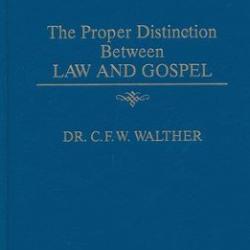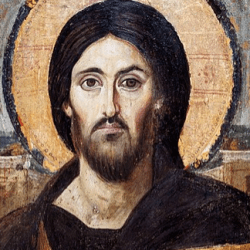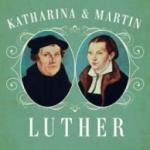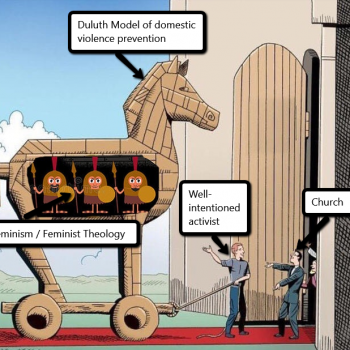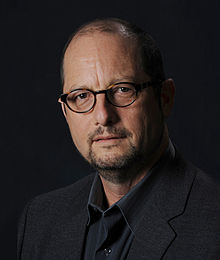
Update: a good amount of discussion has ensued in response to this post, but mostly on Facebook. You can find some of the questions posed and my answers at a follow-up post here on my personal blog, theology like a child.
Despite the picture and provocative caption that leads off this post, it is not really about the molehill that is Bart Ehrmann. It rather attempts to critically address, in a thoughtful way, the modernist / Enlightenment world of biblical criticism from which he has come. I make no claim to expertise in what I write of below – my hope is that this post and any subsequent discussion can get interested persons, including myself, thinking more about this important topic.
Pastor Jordan Cooper, the owner of this blog, has written and podcasted about how he is in favor of supporting what is called “the Majority text” over what we today call “the critical text” (think Nestle-Aland, now in its 28th ed.). In his support of this “Ecclesiastical text”, he is decidedly against the mainstream of biblical scholarship.
I think that Pastor Cooper has done us a service in clearly stating his viewpoint and giving persons an accessible introduction to these important issues. If you have not had a chance to look at these yet, I encourage you to do so (here is another good introductory post).
My own view is also that what we might call the Byzantine text is the text that we should trust (and my reading of a recent scholarly treatise on this topic further confirms me in my own view, which I lay out below[i]).
Why do I think this? In brief, I believe that God, in His providence, preserved His word in the churches of the East, and that this word performed two critical functions in history: a) to provide a common, shared text for the churches of the Eastern churches ; and b) to provide a needed corrective to the churches in the West, for whom the highly flawed Latin Vulgate had become the default biblical text.
During the time of the Reformation, apologists from the Roman Catholic church argued that the Greek text of the New Testament and the Hebrew text of the Old Testament had been corrupted and that the Vulgate alone preserved the authentic text. And yet, when it came to the Latin Vulgate, many could see clearly that distrust had rightly been earned here, and a “shake-up” of sorts was necessary. This largely came in the form of what we call the “Textus Receptus” of a Roman Catholic scholar named Erasmus. He introduced this new edition of the Greek text of the New Testament when he did (based largely on what were understood to be Byzantine copies of the original biblical text in Greek) in order to fix problems in the Vulgate. The rest, in the “Protestant” West at least, is history.

My impression is that this quest was largely wrongheaded, but let me be clear about why I think this is so. I actually do not have difficulty with a person arguing that these early editions of the Bible, produced as they obviously were with the imprimatur of the church’s hierarchy, are basically indicative of the biblical text the Western church has recognized, preserved, and passed down (here, I think, it is like the Apostle Paul says: “let each be convinced in his own mind”![ii]). In other words, in an effort to address the problems clearly seen in the Vulgate, the baby was thrown out with the bathwater (again, the Vulgate would seem to have been largely based on codexes like Vaticanus and Sinaiticus), but this did not need to be the case.
The problem, however, is that the discussion about these things in the church today, because of the impact of a modern scientific and technological mindset (as opposed to using something more akin to a careful legal case) that permeates the academy, basically reduces to the quantitative, i.e. to numbers and percentages. In brief, those advocating for the ever-changing critical text in the train of Westcott and Hort usually do so on the basis of the numbers of the earliest manuscripts (which, as a whole, do tend to conform more to codexes Vatincanus and Sinaiticus), while those in the minority who advocate for what they call the “Majority Text” (basically, the “Byzantine Text”) usually do so on the basis of the total number of manuscripts from the first copies of the Bible up until the Middle Ages.[iii]
![“[Descartes] declared that all past beliefs, all ideas inherited from family or state, or indoctrinated from infancy onwards by ‘authorities’ (masters, priests) must be cast into doubt, and examined in complete freedom by the individual subject… – Luc Ferry, discussing the impact of Rene Descartes, pictured (italics mine).](https://infanttheology.files.wordpress.com/2014/05/frans_hals_-_portret_van_renc3a9_descartes.jpg?w=245)
Speaking of numbers, I am guessing that I might have lost upwards of 99% of the Christians in America with that statement, but stick with me here as I explain my reasoning!
Even as Jesus Christ Himself urged the laity of his day to obey those who sat in “Moses’ seat”, He nevertheless blamed those same church leaders for a variety of theological errors (painful detail here). And yet, in spite of this, He trusted that the Scriptures the church had received had been reliably preserved by God. Jesus’ default position was not that God’s assembly, or church, was the corrupter of the biblical texts, but its grateful recipient.
So, why can’t the churches of the East simply be thankful for and trust the biblical texts that they have received? And why can’t the churches that used the Greek text of Erasmus – largely produced from the aforementioned texts – largely do the same? And why can’t those who think that we should defer to what has been called the more “Alexandrian” “text-type” (this is what the critical, or Nestle-Aland text, is largely based on), simply talk about receiving the text as well, apart from the problems with the Latin Vulgate that derived from them (these texts being exemplified by, but perhaps not limited to, codexes like Vaticanus and Sinaiticus)?
Am I saying that it is always wrong to doubt the church? What about “trust but verify”?
To answer these questions in brief, “no, it is not wrong to distrust the church (see more reflection here), but distrust, where it exists, ought to be earned, i.e. justified” (think “Donation of Constantine”[v]) and “’trust but verify’ is really an oxymoronic statement.”[vi]
The fact of the matter is that when it came to receiving the biblical text, distrust was never truly justified, even if some, of course (like the deists and others with anti-Christian motivations), were eager to say that it had been earned. What happened, it seems to me, is that some persons became aware of variants in the various text-traditions (realizing there were rough “text types”, or perhaps, as some say today, “text clusters”), and started exploring more. I don’t have an issue with this per se, because I do believe that God has made all of us simply curious about this or that, and I don’t doubt that he raised up persons who were curious about this kind of thing as well – and that he provided avenues for them, at their unique point in geography and history, to begin further exploration.
The problem, however, is that this exploration was not openly explored and discussed in the church, and with a proper respect of church authorities and their responsibilities in mind.[vii] Persons in the church hierarchy, understandably, were eager to safeguard the integrity of the text, and to let persons know that serious matters about the Bible were not in doubt. Those on the cutting edge of this exciting and attention-getting scholarly work, however, were not always eager to work slowly, carefully, deliberately, and intelligently with the top leadership in the church. They often acted alone in this sense (though not without the help of, for example, the state and the academy), and, at the very least, fueled the impression of a conspiracy among the orthodox (often maligned as “dead” or “Pharisaical”) to hide the “many errors and corruptions” of the biblical text.[viii]
In response, the orthodox leadership could hardly be blamed for seeing something dark in the critical scholar’s work from the beginning (unfortunately, the attempts to “call out” the irreverent – and sometimes downright impudent – critical scholars and their pietistic allies may have, at times, been both too weak and rather ham-fisted). This, it seemed, was something altogether different from the kind of textual criticism the earliest of the church fathers themselves admitted to openly – after all, before the church as a whole (i.e. the leadership), thankfully, had the means to “first, [when doing biblical interpretation] correct your copy of the text” (as Augustine had said), it was these individual Christians who had to make decisions regarding the various variant manuscripts they were aware of.
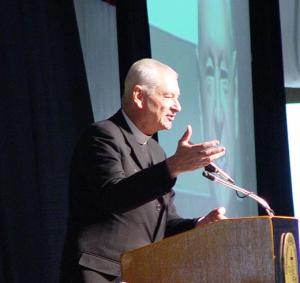
So again – none of this means that Christians should be opposed to scholarship per se (see more thoughts on scholarship vis a vis Christianity here). On the contrary, I think all of this comes down to not respecting authority. Of God, the Bible, and the Church.[ix]
Again, didn’t Jesus Christ and His apostles quote the commonly used text of their day – the Torah that people actually had – as God’s inspired Word? As Charles Wiese points out: “We…have evidence of a variety of different textual traditions that pop up in the New Testament. Most of the time, Jesus and the Apostles don’t quote from the textual tradition behind the Hebrew Masoretic text but the tradition stands behind the LXX.” How does this compare with the church’s approach today, where it seems the decisions of an editorial committee in Muenster (home of Nestle-Aland 28, the “standard text” of Christendom) are of inevitable authority for us and our theology?!
In short, the kind of approach advocated in even the most conservative Christian colleges and seminaries is tremendously lacking. It is an atomized individualism – regarding persons, texts, and churches – that is on display in spades. In matters as simple as receiving the Scriptures to the matter of corporate worship, there is no respect shown to the authority of those above one’s self – and so there is also no mutual submission of the brethren to one another.
No thanks. I, for one, will buck this trend and say:
“I will receive in humble and grateful child-like trust what is given unless there is something really off like the glaring Comma Johanneum (even this was not in the earlier editions of Erasmus’ text, and hence is not in Luther’s German Bible). To say the very least, there is no need to give any kind of false impression that the church has anything to be hiding or has been hiding anything when it comes to God’s word.”[x]
Please challenge me on this. Attempt to educate and inform me, and if you suspect I am unteachable, try to do that for others.
Let’s talk more about how the Verbum Domini Manet in Aeternum.
FIN
Image credits:
Bart D. Ehrmann by Dan Sears UNC-Chapel Hill ; Rene Descartes ; Ernst Troeltsch (1865-1923), from http://kcm.kr/dic_view.php?nid=37849 (published in the US before 1923 and public domain in the US) ; Kurt Marquart, by http://www.angelfire.com/ny4/djw/marquartlectures.html maintained by David J. Webber
Notes:
[i] The author of this treatise, erstwhile master’s degree student Ernst Boogert, says at one point: “Truth may and should be questioned, because by testing it, it is strengthened.” (p. 63) My own view on this is a bit more nuanced: it is indeed possible, through God’s providential care, that truth can be strengthened in the act of questioning – but that this is not necessarily the case. In fact, depending on our attitude towards the things of God, I submit that sometimes received truth should not be questioned, even if God might use unwarranted skepticism for good (more on this in the broader piece above).
“It is not enough to say that historical criticism means ‘discriminating appreciation.’ The historian,’ says [David] Lotz, ‘must cross-examine, test, weigh, probe and analyze all written records of the past. If he fails to do this he de facto surrenders his claim to the title of historian!’” (Marquart, Kurt; quoting from a May 1975 issue of Forum Letter, in his Anatomy of an Explosion: Missouri in Lutheran Perspective, p. 114, italics mine). I note that view/attitude well. Evidently, we can’t seek to learn more about history simply because we are curious to do so. Of course questions will come, but no one can question absolutely everything about their own history or history more widely conceived.
With all of that said, I believe that my own view comports quite well with Boogert’s recent and rather detailed study (again available here) that seeks to constructively address and overcome the impasse that currently exists between CT and MT (Byzantine) advocates. Elsewhere, in his study he writes: “Both Byzantine protagonists and eclectics need to take time for careful analyses of each other’s arguments. This thesis provides a wealth of arguments that need consideration and reinvestigation.” (p. 63)
[ii] Ernst Boogert again (see above endnote): “…theological notions like providence and preservation need to be connected with the content of the New Testament and not with the letter. In that sense, the New Testament is historically and theologically fully preserved.” (p. 66)
[iii] Numbers can wow us to be sure. They might even tempt us with their perceived usefulness. As my pastor put it: “There are a little over 3.5 million letters in the Bible (3,566,480). In that most textual variants have to do with letters, even if the “mistakes” or “conflicts” are determined to be in the thousands, that is still, simply statistically, insignificant. There are 783, 137 words in the Bible. The same could be said about them. Overall agreement between the RT, MT and CT seems to be about 99.5%. So for a book that is from 2000-3500 years old, and copied by hand for much of its existence, that is simply amazing.”
[iv] In other words, I believe that the actions of the church authorities in this case were certainly God-inspired acts of love for good of – and order of – the one church.
From this it simply follows: Those who don’t think this results in an infallible and inerrant text should, at the very least, point out how reliable and firm it is! And this should be, if they desire to be friends of God and His people, their constant public refrain.
Again, recognizing that there are variant traditions, deriving from various schools and centers of Christian influence should not change any of this.
[v] A line from the 2003 movie Luther comes to mind. In it, Martin Luther jests: “the priests assured me that by gazing at sacred relics, I could cut down my time in purgatory. Luckily for me, Rome has enough nails from the holy cross to shoe every horse in Saxony… but there are relics elsewhere in Christendom. Eighteen out of twelve apostles are buried in Spain…” see here: http://www.imdb.com/title/tt0309820/quotes
[vi] And to be honest, I think that after a while, the 16th century reformer Martin Luther realized, for example, that he should just shut up about his misgivings about the book of James, Hebrews, and Revelation, for example. I suspect that as a good churchman, he recognized it was enough to say what some in the early church said: these books were received as canon, but, since some orthodox persons spoke against their inclusion in the canon, should not be used to determine any doctrine.
[vii] An Eastern Orthodox Christian, Rod Dreher, has expressed this responsibility well: “
“…what I can tell definitively about Orthodox Christian doctrine would be about one-third of the length of my big long Dante blog post yesterday. But I trust the guides who know the territory. I don’t need to know how to read maps to trust them to lead me out of the dark wood. Moreover, I don’t have to worry that there’s a big fight among the guide corps over whether or not the maps and the methods of map-reading have anything true to tell us about where we are in the world, and what we need to do if we are to get out of the dark wood.” (Does Doctrine Even Matter To Liberal Catholics?)
[viii] Those of a more pietist bent, eager to distinguish themselves from the orthodox, also promoted their work.
[ix] Today, we see this in full flower with “progressive religion” and its counterpart tendencies: radical social justice warring, identity politics, and the denial of truth and fact (see here, for example).
[x] Wikipedia has a useful list of the most significant New Testament textual variants here:https://en.wikipedia.org/wiki/List_of_major_textual_variants_in_the_New_Testament”
Should we not be utterly amazed at how not only do none of these variants affect doctrine, but none of these variants can be said to necessarily contradict one another at all?!
As church historian Martin Noland has pointed out (from a private email correspondence, shared with permission): “The textual variants in the New Testament only become a big deal when anti-Christian polemicists blow their significance way out of proportion. This happened first in the Deist controversies in the 18th century; and has been resurrected by Bart Ehrmann today, to his great financial and career profit.”



